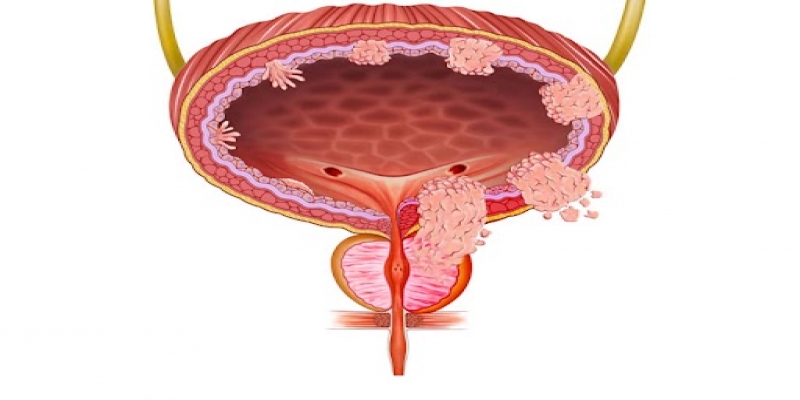Understanding Urinary Bladder Cancer: Symptoms, Treatment, and Comprehensive Guide
2024-03-26 / RG STONE HOSPITAL / Female Urinary Incontinence

Introduction: Urinary bladder cancer is a significant health concern worldwide, with thousands of new cases diagnosed each year. Understanding the symptoms, treatment options, and essential information about this disease is crucial for early detection and effective management. In this comprehensive guide, we delve into the symptoms, treatment modalities, and key aspects of urinary bladder cancer to provide valuable insights and information.
Understanding Urinary Bladder Cancer
Urinary bladder cancer occurs when abnormal cells grow uncontrollably in the lining of the bladder. While the exact cause of bladder cancer is not fully understood, certain risk factors, including smoking, exposure to certain chemicals, chronic bladder inflammation, and genetic predisposition, can increase the likelihood of developing the disease.
Symptoms of Urinary Bladder Cancer
Recognizing the symptoms of urinary bladder cancer is essential for early detection and prompt medical intervention. Common signs and symptoms may include:
-
Blood in the urine (hematuria), which may be visible or detected during urinalysis.
-
Frequent urination or a persistent urge to urinate.
-
Pain or discomfort during urination.
-
Pelvic or lower back pain.
-
Changes in urinary habits, such as difficulty urinating or weak urine stream.
-
Unintentional weight loss or fatigue.
It's important to note that these symptoms can also be indicative of other urinary tract conditions, so a thorough medical evaluation is necessary for accurate diagnosis.
Diagnosis and Staging: Diagnosing urinary bladder cancer typically involves a combination of medical history review, physical examination, imaging tests (such as ultrasound, CT scan, or MRI), and urine tests (urinalysis, urine cytology). In some cases, a cystoscopy may be performed to visualize the inside of the bladder and obtain tissue samples for biopsy.
Once diagnosed, bladder cancer is staged based on the extent of the disease, which helps guide treatment decisions. Staging may involve imaging studies and additional tests to determine if the cancer has spread beyond the bladder.
Treatment Options: The treatment approach for urinary bladder cancer depends on various factors, including the stage and grade of the cancer, overall health status, and patient preferences. Treatment modalities may include:
-
Surgery: Surgical options for bladder cancer include transurethral resection of the bladder tumor (TURBT), partial or radical cystectomy (removal of part or all of the bladder), and urinary diversion procedures.
-
Chemotherapy: Chemotherapy may be used before or after surgery to shrink tumors, destroy cancer cells, or prevent recurrence.
-
Immunotherapy: Immunotherapy drugs, such as immune checkpoint inhibitors, are increasingly being used to treat bladder cancer by enhancing the body's immune response against cancer cells.
-
Radiation Therapy: Radiation therapy may be used alone or in combination with other treatments to target and destroy cancer cells in the bladder.
The choice of treatment and the sequence of therapies are tailored to each patient's specific needs and may involve a multidisciplinary team of healthcare professionals, including urologists, medical oncologists, radiation oncologists, and specialized nurses.
Follow-Up Care and Prognosis: After completing treatment for urinary bladder cancer, patients require regular follow-up care to monitor for recurrence and manage any long-term side effects. Follow-up visits may include physical examinations, imaging studies, and urine tests to assess treatment response and detect any signs of recurrence.
The prognosis for urinary bladder cancer varies depending on factors such as the stage and grade of the cancer, response to treatment, and overall health status of the patient. Early detection and prompt treatment can improve outcomes and quality of life for individuals affected by bladder cancer.
Conclusion: Urinary bladder cancer is a complex disease that requires comprehensive evaluation and personalized treatment planning. By understanding the symptoms, diagnostic approaches, treatment options, and follow-up care, patients and their families can make informed decisions and actively participate in their care journey. Additionally, raising awareness about bladder cancer risk factors and early detection strategies is essential for promoting timely diagnosis and improving outcomes for individuals affected by this disease.
Categories
Hernia Repair
Appendicitis
Piles
Urological Treatment
Hernia treatment
Enlarged Prostate (BPH)
Gall Bladder Stone
Urinary / Kidney Stone
Vitamins
Indian Health Care System
Exercise
Obesity
Female Urinary Incontinence
Single Incision Laparoscopic Surgery (SILS)
Kidney Cancer
Bladder Cancer
Ovarian cancer
Nephrology
Bariatric Surgery
Kidney Function Test
Female Urology
Radiation Therapy
Alcoholic Fatty Liver
Liver disease
Gastroenterology
Kidney Disease

